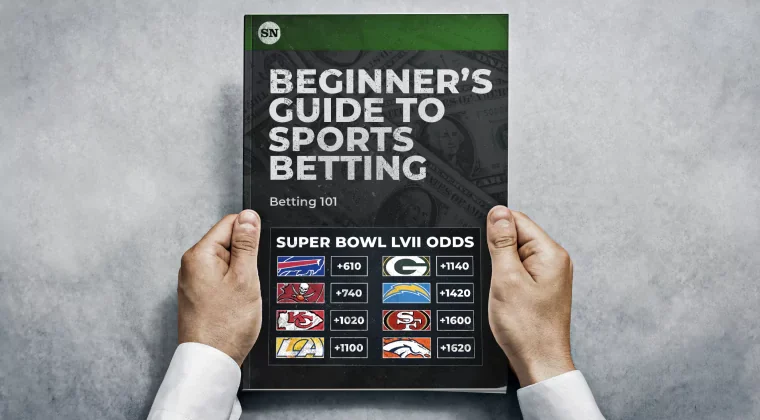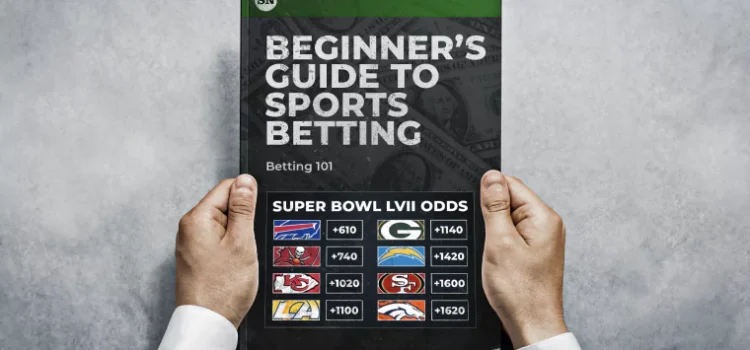
For newcomers, sports betting can feel overwhelming and sometimes even intimidating. The world of odds, spreads, and various betting types might seem confusing at first, but once you break it down, it’s all about understanding the fundamentals. Here’s a guide highlighting the first 12 things every beginner should know before placing their first bet.
1. Favorites vs. Underdogs
When oddsmakers set a line for a game, the first decision they make is which team is the favorite and which is the underdog. The favorite is expected to win, marked with a minus sign (-), while the underdog has a plus sign (+). For instance, if the Eagles are -4.5 favorites, they must win by at least 5 points for a bet on them to pay out.
2. Point Spreads
Point spreads are a popular way to bet, where you predict the margin of victory. In the example above, if the Eagles are favored by 4.5 points over the Lions, the Eagles need to win by 5 or more for a bet on them to win. If the Lions win or lose by fewer than 5 points, a bet on them wins. Point spreads are common in high-scoring sports like football and basketball.
3. Moneylines
A moneyline bet involves picking the winner of the game. The odds are represented in American format, and the amount you risk depends on whether you’re betting on the favorite or underdog. For example, a bet on the Colts at -375 means you need to wager $375 to win $100, while a bet on the Texans at +300 would earn you $300 for every $100 wagered.
4. Over/Unders (Totals)
Oddsmakers set a combined total for both teams’ scores in a game. You bet on whether the total points will be over or under that number. For instance, if the total for an Eagles-Lions game is set at 46, a bet on the over means you need 47 or more points scored in total for the bet to win.
5. What Does -110 Mean?
When you see odds like -110, it refers to the “juice” or vig — the amount you need to bet to win $100. A -110 line means you need to wager $110 to win $100. The odds reflect the sportsbook’s commission and are common across most bets, especially point spreads.
6. How to Place a Bet
Once you understand the bet, placing it is simple. Choose your game, select the bet type, and enter your wager amount. The sportsbook will then populate the bet slip, allowing you to confirm your selection and place your bet.
7. Where to Place a Bet
You can place bets at legal online sportsbooks, which vary by state. Be sure to check which sportsbooks are available in your state, such as BetMGM, FanDuel, or Caesars. Some states also allow in-person betting at casinos or racetracks.
8. How Much to Bet
A key rule in sports betting is to only bet what you can afford to lose. It’s recommended to start with a flat-betting strategy, risking 1% to 5% of your bankroll per bet. This approach ensures you can weather losing streaks without depleting your funds.
9. Parlays
A parlay combines multiple bets into one, offering a higher payout but higher risk. All bets within the parlay must win for the bet to pay out. A more recent trend is the “same-game parlay,” where you combine bets from the same game, allowing for more personalized betting options.
10. What Is a Prop?
Prop bets are wagers on specific events within a game, like player performance or other unique outcomes. For example, you might bet on a quarterback throwing over or under 2.5 touchdowns. Props can add excitement but are often riskier due to their specificity.
11. Shopping for Lines
Different sportsbooks offer slightly varying odds. It’s beneficial to shop around to ensure you’re getting the best value for your bet. A slight difference in odds can affect your long-term profitability.
12. Know Your Strengths/Weaknesses
As a beginner, focus on learning one or two sports well. Specializing helps you understand patterns and trends that could give you an edge. Also, be aware of your strengths and weaknesses in betting, whether it’s analyzing data, understanding odds, or managing your bankroll.
With these 12 tips, you’re better equipped to dive into the world of sports betting. Remember, sports betting is a journey that requires patience, discipline, and knowledge. Start small, stay informed, and most importantly, bet responsibly.












